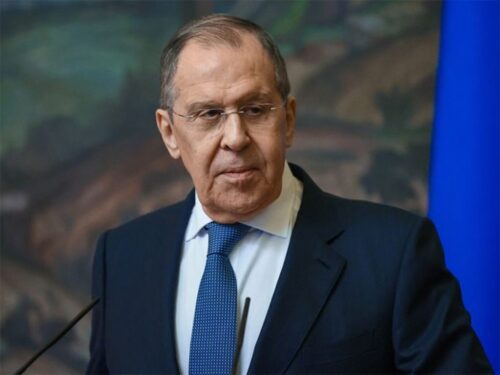“We want to resume the format approved by the UN Security Council, in which France, Germany, the United Kingdom, the United States, Russia, China and Iran participated. We will see how everything proceeds,” Lavrov said Wednesday in an interview with US bloggers Andrew Napolitano, Larri Johnson and Mario Naufal.
At the same time, the foreign minister expressed concern over some indications that the United States would want a new deal to be conditional on Iran submitting to inspections to prove it does not support groups in Iraq, Lebanon, Syria or elsewhere. “I don’t think that approach will work,” he stressed.
Lavrov added that all Persian Gulf countries have influence beyond their borders and that, for example, in North Africa they carry out numerous humanitarian and economic programs, in addition to acting as mediators.
“Therefore, I believe that a scenario in which everyone except Iran has the right to influence other countries in the region is unrealistic,” he concluded.
In 2015, Iran and six international mediators – Russia, the United States, the United Kingdom, China, France and Germany – signed the Joint Comprehensive Plan of Action (JCPOA), which imposed a series of limitations on the Iranian nuclear program with the aim of excluding its possible military dimension, in exchange for the lifting of sanctions.
In May 2018, Washington tore up the agreement and began imposing unilateral sanctions on Iran on the grounds that Iran was continuing to develop nuclear weapons, something that has not been proven.
A year later, Tehran responded with a gradual reduction in compliance with the commitments made under the JCPOA, renouncing, in particular, limitations on nuclear research and on the level of uranium enrichment.
In April 2021, the parties to the agreement, together with the United States, began negotiations in Vienna to reinstate the nuclear pact, but in March 2022 the consultations stalled and have not been resumed since.
jrr/jav/mem/gfa









